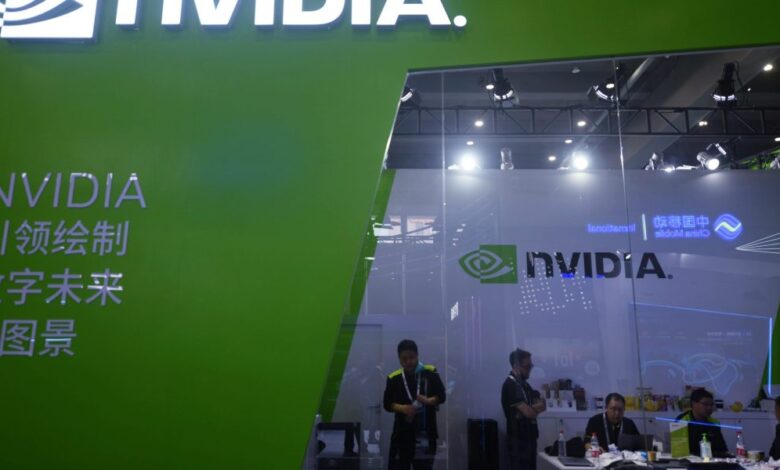Nvidia Surpasses Expectations with Soaring Earnings

In a stunning quarterly earnings report released on Wednesday, Nvidia revealed a remarkable 265% increase in revenue compared to the same period last year, causing a surge of over 9% in share value during extended trading. The robust performance highlighted the growing demand for Nvidia’s processors, particularly in the field of accelerated computing and generative AI, which CEO Jensen Huang emphasized had reached a tipping point.
However, amidst the celebratory financial results, Nvidia acknowledged the significant impact of escalating tensions between the U.S. and China, particularly in the semiconductor sector. Collette Kress, the Chief Financial Officer, stated that China now contributes only a “mid-single digit percentage” to Nvidia’s data center revenue, a notable decline from previous quarters. Kress anticipated a similar percentage for the ongoing quarter.
This downturn in Chinese revenue is noteworthy, considering that Nvidia had previously disclosed that China accounted for as much as a quarter of the company’s data center revenue. The decline can be attributed to the U.S. government’s imposition of controls on advanced semiconductor sales to China in October 2022. Nvidia and other companies initially adapted by developing chips compliant with the restrictions but still offering advanced capabilities. However, the Biden administration tightened regulations last October, closing the existing loophole.
Chief Financial Officer Collette Kress revealed that Nvidia has not received a license from the U.S. government to ship restricted products to China. In response, the company has started shipping alternative products to China that do not require a license. CEO Jensen Huang explained that Nvidia has “immediately paused” and “reset” its product offerings in China, citing this as the primary reason for the drop in data center revenue from the region. He expressed the company’s commitment to navigating the Chinese market within the specifications of U.S. restrictions.
Despite these challenges, Nvidia is actively working to develop chips for the Chinese market that comply with U.S. restrictions. However, reports suggest that Chinese customers are turning to domestic alternatives instead, as they find Nvidia’s downgraded products closer in performance to more affordable Chinese options. Chinese chipmakers are also promoting their own products as a safer option, anticipating potential new controls from the U.S.
As Nvidia faces headwinds in the complex landscape of U.S.-China semiconductor relations, the company remains determined to adapt and thrive within the confines of regulatory constraints. The unfolding developments will undoubtedly shape Nvidia’s trajectory in the highly competitive and geopolitically sensitive semiconductor market.


